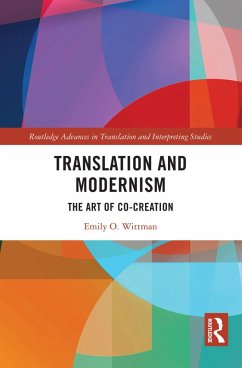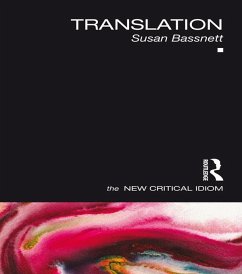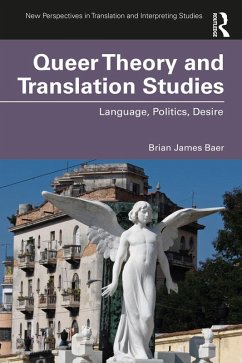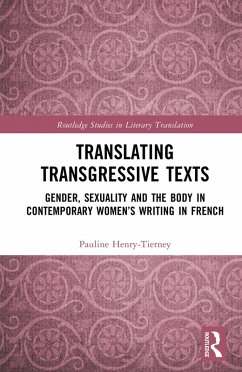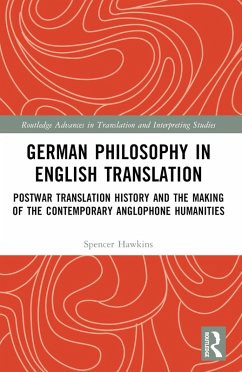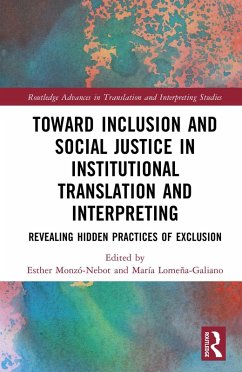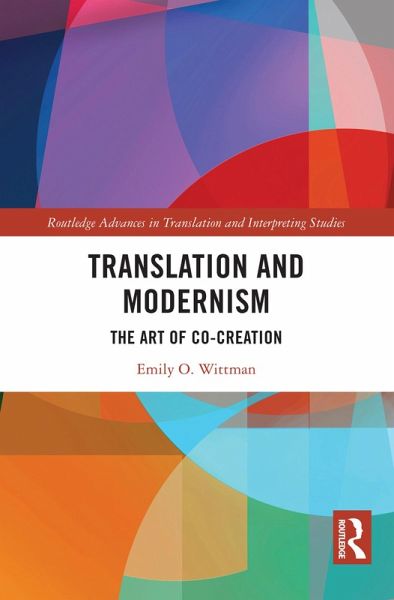
Translation and Modernism (eBook, ePUB)
The Art of Co-Creation
Versandkostenfrei!
Sofort per Download lieferbar
42,95 €
inkl. MwSt.
Weitere Ausgaben:

PAYBACK Punkte
21 °P sammeln!
This innovative volume extends existing conversations on translation and modernism with an eye toward bringing renewed attention to its ethically complex, appropriative nature and the subsequent ways in which modernist translators become co-creators of the materials they translate.Wittman builds on existing work at the intersection of the two fields to offer a more dynamic, nuanced, and wider lens on translation and modernism. The book draws on scholarship from descriptive translation studies, polysystems theory, and literary translation to explore modernist translators' appropriation of sourc...
This innovative volume extends existing conversations on translation and modernism with an eye toward bringing renewed attention to its ethically complex, appropriative nature and the subsequent ways in which modernist translators become co-creators of the materials they translate.
Wittman builds on existing work at the intersection of the two fields to offer a more dynamic, nuanced, and wider lens on translation and modernism. The book draws on scholarship from descriptive translation studies, polysystems theory, and literary translation to explore modernist translators' appropriation of source texts and their continuous recalibrations of equivalence between source text and translation. Chapters focus on translation projects from a range of writers, including Beckett, Garnett, Lawrence, Mansfield, and Rhys, with a particular spotlight on how women's translations and women translators' innovations were judged more critically than those of their male counterparts. Taken together, the volume puts forth a fresh perspective on translation and modernism and of the role of the modernist translator as co-creator in the translation process.
This book will be of particular interest to scholars in translation studies, modernism, reception theory, and gender studies.
Wittman builds on existing work at the intersection of the two fields to offer a more dynamic, nuanced, and wider lens on translation and modernism. The book draws on scholarship from descriptive translation studies, polysystems theory, and literary translation to explore modernist translators' appropriation of source texts and their continuous recalibrations of equivalence between source text and translation. Chapters focus on translation projects from a range of writers, including Beckett, Garnett, Lawrence, Mansfield, and Rhys, with a particular spotlight on how women's translations and women translators' innovations were judged more critically than those of their male counterparts. Taken together, the volume puts forth a fresh perspective on translation and modernism and of the role of the modernist translator as co-creator in the translation process.
This book will be of particular interest to scholars in translation studies, modernism, reception theory, and gender studies.
Dieser Download kann aus rechtlichen Gründen nur mit Rechnungsadresse in A, B, BG, CY, CZ, D, DK, EW, E, FIN, F, GR, HR, H, IRL, I, LT, L, LR, M, NL, PL, P, R, S, SLO, SK ausgeliefert werden.




